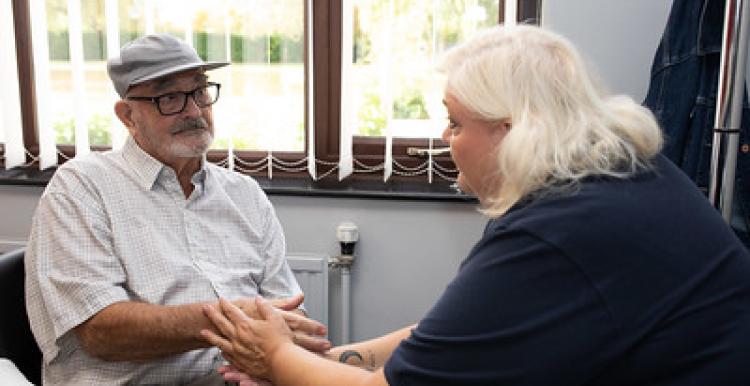Help making a complaint - adult social care services

Should I make a complaint?
If your complaint is an immediate or high-risk situation, such as you or your loved one are not receiving enough care, there is a risk to your safety, or you have suffered from discrimination, you should report the problem immediately.
You may decide not to make a complaint because you are worried that it might make your situation worse. You may worry that if you speak to the services directly, you could annoy them, and the standard of care you receive might get worse.
You are not alone – a lot of people don’t make a complaint because of these fears.
But it is important that where services aren’t working as planned social care providers learn from complaints, communicate those lessons to people, and improve.
Where should I start?
For many people, the first step is taking some time to think about what went wrong, what the service could have done better, and what you'd like to happen as a result. This will help you to make the complaint as well as helping the service understand how to address your concerns.
The outcome you want could include:
- Getting access to the care you need
- Improving the service, so other people don’t have the same experience you had
- Receiving an explanation of what went wrong and an apology.
- Getting someone disciplined or prosecuted.
- Getting compensation
Timeframe
You normally have 12 months after an incident (or after becoming aware of an incident) to make a complaint.
Preparing to make a complaint
It can help to put together any documents relating to the problem so that you are able to talk about these during the complaints process. This might include documents about your social care assessment, financial assessment, or care plan. You may also want to gather other information to help you prepare for your complaint - such as reading the complaints policy to help you know what to expect.
Who should I contact?
Who you need to contact will depend on how the adult social care you wish to complain about is funded. In all cases, the first step is to:
Contact the care provider
You can make a complaint directly to the organisation who provides the service (e.g. the care home or the home care agency). You can do this by contacting the Service Manager by phone, email or post. It may be helpful to request a copy of their complaints policy so you know how they plan to handle your complaint.
If the Adult Social Care service that you wish to complain about has been funded or arranged by Rotherham Metropolitan Borough Council (RMBC):
Contact Rotherham Metropolitan Borough Council
RMBC Adult Social Care complaints page
You can send a letter via the Freepost address:
FREEPOST RTCT-XKLS-ZHAZ
The Complaints Manager
Riverside House
Main Street
Rotherham
S60 1AE
01709 382121 (The customer services representative handling your call will direct you to the appropriate department)
Text: 07860 021 447
You can speak to someone in person at one of RMBC's Customer Service Centres or any Council reception point.
If the Adult Social Care service that you wish to complain about has been funded or arranged privately or through voluntary care:
Contact the Local Government & Social Care Ombudsman
Local Government & Social Care Ombudsman complaints page
If the Adult Social Care service that you wish to complain about has been fully or partially funded by the NHS:
Contact the South Yorkshire Integrated Care Board (SY ICB)
Complain to South Yorkshire Integrated Care Board ( SYICB)
syicb-sheffield.icbcomplaints@nhs.net
0333 041 0021 (South Yorkshire Integrated Care Board)
What next?
The organisation you have complained to should always acknowledge your complaint and respond with how they intend to investigate.
The organisation should then investigate your complaint and resolve the problem quickly and efficiently. They should also keep you fully informed about how the investigation is going.
You may be invited to a meeting to discuss your complaint or offer mediation or other help to resolve the complaint. It’s good practice to allow you to be accompanied to any meeting – so don’t feel like you need to go alone.
Once they have investigated your complaint, they must then respond to you. Their response should:
- Explain how the complaint has been investigated
- Explain the conclusions they have reached, including any action they intend to take to resolve the situation
- Give details of how to escalate your complaint if you are not satisfied with the response.
Hopefully the complaint will be resolved in a way that you're happy with. However, if you are not happy with the way your complaint has been resolved, you can appeal and/or escalate it via the Local Government and Social Care Ombudsman. The Ombudsman reviews complaints independently and will make a final decision.
If you need extra support making a complaint
Absolute Advocacy (Cloverleaf) provides the Independent Advocacy Service for Rotherham. They are there to support you to make a complaint about Adult Social Care services.
They can help you:
- Make a social care complaint
- Attend complaint meetings with you
- Help you understand your rights and how to exercise them
Their service is free and confidential.


